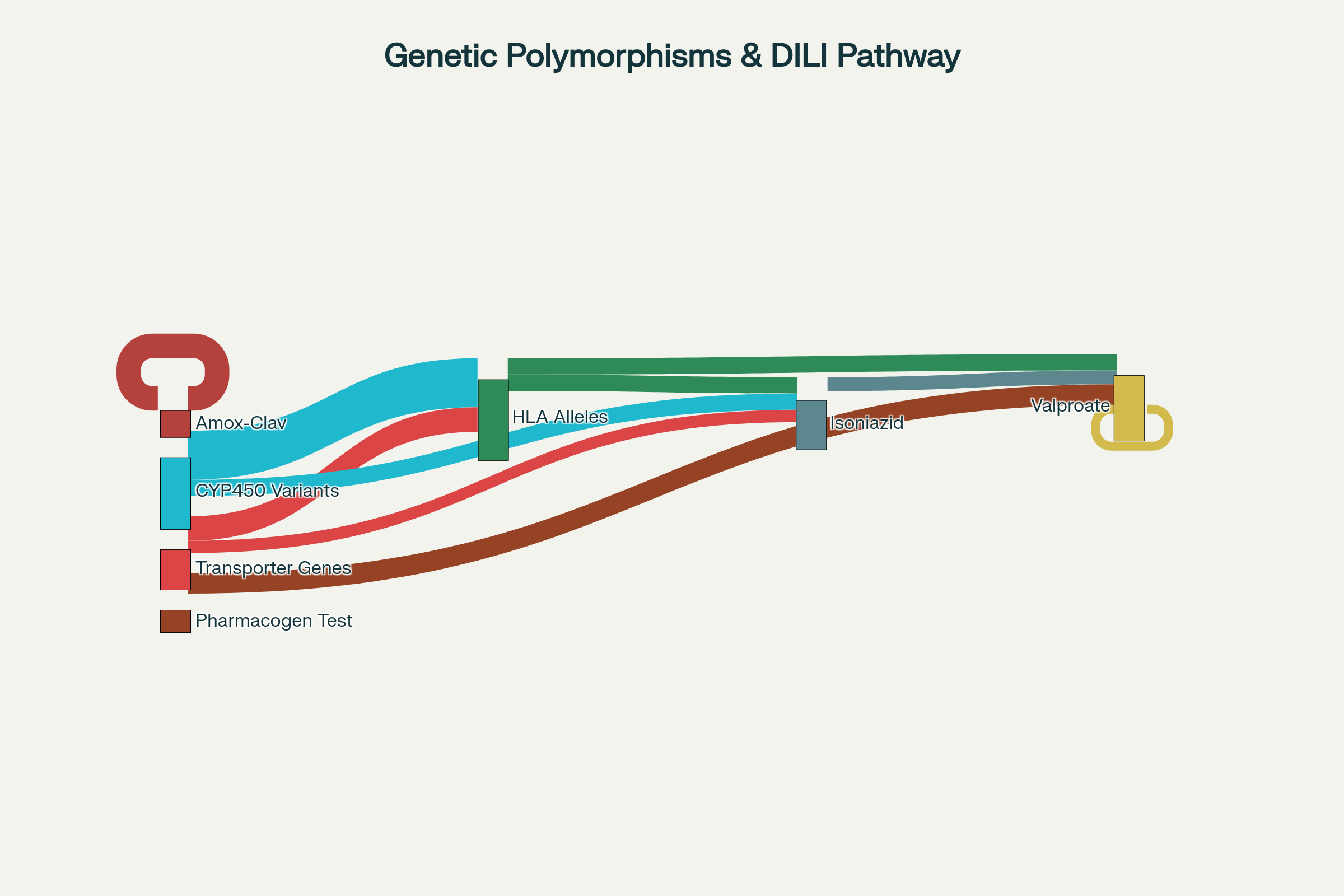Role of Genetic Polymorphisms in Drug-Induced Liver Injury (DILI)
DOI:
https://doi.org/10.64062/JPGMB.Vol1.Issue4.3Keywords:
Drug-induced liver injury (DILI), Genetic polymorphisms, CYP2E1, Mouse models, Hepatotoxicity, Acetaminophen, Inflammatory biomarkers, Personalized medicine, Pharmacogenetics, Oxidative stress, Animal trialsAbstract
A major cause of acute liver failure and drug reaction, drug induced liver injury (DILI) usually has a genetic component. This paper discusses the effect of genetic polymorphisms as a risk factor of DILI with reference to different inbred and genetically altered mouse models. Using the administration of hepatotoxic agent like acetaminophen, the study is used to compare the biochemical, morphologic, and gene expression in models among various strains. Data indicate that DBA/2 and Cyp2e1 knockout mice have a much higher liver enzymes and inflammatory gene expression response when compared to the resistant strains such as C57BL/6 and thus, strongly exhibits a genetic influence in DILI response. These inter-strain differences are confirmed as a result of statistical analyses such as ANOVA analysis, correlation and principal component analysis. The results reinforce the importance of genetic predisposition in drug safety and espouse the need to employ pharmacogenetic screening approaches within the preclinical studies as well as in clinical risk evaluation to enhance the efficacy of individualized medicine practices.




